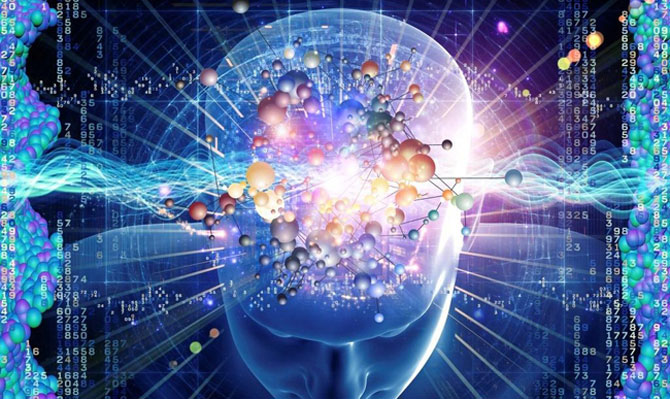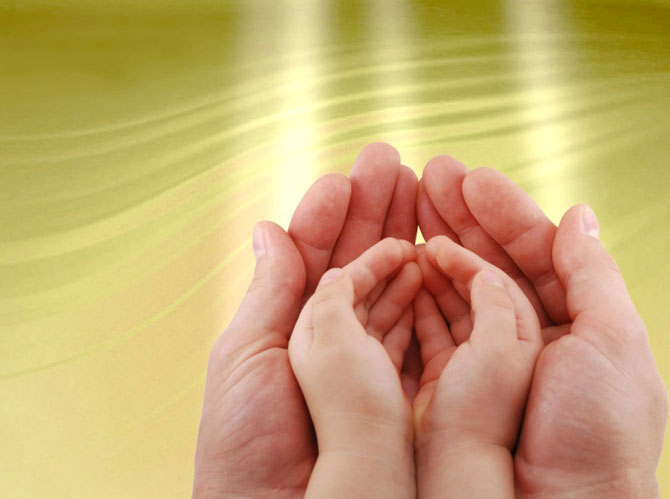“Women, rejoicing in their identity and indistinguishability, are celebrating, in essence, their impending death, which will make them absolutely identical.”
Milan Kundera, "The Unbearable Lightness of Being"
We follow the fashion: we immediately run to the boutique for the most relevant dress with ethnic print in the bandeau style for this season, and to the cosmetics store for the cherry lipstick of a French company with a big name. We all go on diets for weight loss, even without often having a single gram of excess weight. We meet with any men, because it is indecent to be alone ... The list goes on and on, and if at least one of the above is about you too, then it's time to start cultivating individuality in yourself. Otherwise, you risk never becoming a real woman: incomparable, incomparable, one of a kind.
At first glance, this task seems difficult to accomplish. This is because, in principle, it is not clear how to awaken the qualities of an individual personality. Here we should remember the wise saying: "Everything ingenious is simple." It is she who underlies the algorithm for the implementation of the intended goal.
Individuality must manifest itself in a person at all levels: from appearance to worldview. This should be taken into account in the process of working on oneself in the direction of developing one's own personality.
The woman who lives in harmony with her own body, thoughts, feelings and of course the world around her, the people inhabiting it, is truly individual.

She knows how to be psychologically flexible in certain circumstances and never allows herself to sink to the level of an ill-mannered ignoramus, to be led by her own emotions, so as not to show herself not from the best side.
The individual must be a wealthy person. But this does not concern material well-being at all: it means spiritual and intellectual wealth. The inner world of such a person is the whole Universe, in which its owner is very comfortable. At the same time, the doors of this world are always open for others who really want to comprehend the secrets and facets of the soul of the specified person. But this trip should not be imposed on anyone ...
Figure 3 ![]()
A woman with a strong personality has her own vocation in life. More precisely, such a lady manages to find him. It will not necessarily be the presence of a specialized education in a specific specialty and a lot of experience in this field of activity. It is important that there is an occupation, an area of \u200b\u200bknowledge in which the fair sex feels like a fish in water - a real ace. Some believe that marriage and the birth of children are the main purpose of a woman in the earthly world. They are right and at the same time wrong: the main thing, but far from the only one. An individual woman is not only a wife and a mother, she is also a versatile, harmoniously developing personality.
A person with a pronounced personality stands out from the crowd in the literal sense of the word. There is a time-tested method: choosing an original style of clothing. It is important not just to be fashionable, beautifully dressed - the combination of the things worn on a woman with each other and the harmony of this combination with the fair sex herself are of great importance. Here a sense of taste and style should be shown, and in the absence of it, it will certainly develop.
An individual, bright woman has a broad outlook.

She knows how to maintain a conversation on any topic, be a worthy participant in any discussion. It is not necessary to be an ace in all areas of knowledge, and this is not real. But a woman with a pronounced individuality is obliged to adapt to the current conversation in a circle of people of a different format, that is, with qualitatively different interests, worldview.
The individual does not sit idle. She appreciates every minute, she spends every moment with benefit. She is well aware of the "Tale of Lost Time", therefore such a person in every possible way avoids the disappointing consequences of idleness.
Our world today is for the most part cruel, callous and cold. Empathy, compassion, mercy, love for one's neighbor are practically nonsense in the 21st century. But all the qualities just listed should be possessed by a woman who decides to become an individual. A fire of kindness and readiness to always come to the rescue must burn in her heart. This is the best thing that can distinguish a person from the crowd, regardless of gender.

An original, rare hobby at the behest of the soul is also a wonderful way to express your individuality. How to find it? Think more broadly: if the soul lies in drawing, then let it be not an ordinary painting, but zentangle and doodling, for example; if there is a desire to collect postcards, then let the choice fall on postcrossing, etc.
But the most important rule that must be observed if you want to develop individuality in yourself is the old phrase: just be yourself!
A child comes into this world already unique, with a set of typological and genetic characteristics inherent only to him, and in the process of socialization becomes a person with an individuality, which, according to the Russian scientist-psychologist A.G. Asmolov must be defended in society.
What is personality?
Humanity as a species, as a whole, has many uniting characteristic features: gender, race, eye and hair color, etc., but there are parameters that distinguish a particular person and are fully manifested in the process of personality socialization. Individuality (from lat. Individuum - individual) - these are the distinctive features of each person, manifesting themselves in uniqueness and originality:
- mental processes;
- temperament;
- thinking;
- appearance;
- patterns of behavior;
- interests specific to the individual.
Individuality in sociology
Human personality is an integral part of the development of society as a whole. The social structure, with its norms and rules, has a direct impact on the formation of the individual and unites people as carriers of this society. The manifestation of individuality in sociology can be expressed by variations in life strategies in the course of self-realization - they are all different due to the acquired experience.
Individuality in psychology
Scientific psychology divides human development into certain stages, during which a person acquires certain new formations (abilities, skills,). From childhood, going through crises (1 year, 3 and 7 years old), the child learns many vital things, and reveals his first talents. Individuality is three integrated forms of development in psychology:
- ontogenesis - the individual development of an organism;
- disclosure of personal properties -;
- formation of professional realization and competence.
Modern psychology considers human individuality as a complex multidimensional system with its inherent laws. The most important indicator of the successful manifestation of individuality is the creative energy of the individual, which is based on a creative basis. The formed individuality can be traced by the contribution (spiritual, material) that a person makes to social development.

Signs of individuality
A person is born with his own tasks, aspirations and mission. The environment, starting with the parental family and ending with society, introduces its own limitations in the form of prohibitions, norms, attitudes and traditions. As an element of society, people carry these correspondences in themselves and are similar in this. Then how does the formation of the individual's uniqueness take place? The concept of individuality has many levels, the integrity of which can be measured only with the help of mathematical statistics. Factorial personality includes signs:
- features of the cognitive sphere (non-trivial thinking, imagination, memory);
- extraordinary abilities;
- rich "inner" world of a person, formed in the course of personality development;
- intrinsic value;
- integration and activity in society: the establishment of unique interpersonal relationships inherent only to a specific person;
- creativity arising from personal unique perception of the world;
- self-realization through personal contribution to the culture and spiritual development of the city, country, world;
Is individuality good or bad?
People are used to separating things, events, phenomena into "black" and "white". Everything has its polarity. The qualities that characterize the personality can be in excess, becoming sharply negative by the standards of society and the individuality of a person is no exception. The individual style of the artist and the individual "handwriting" of the criminal are colored by different shades of moral attitude. Individuality, turning into eccentricity, causes at least bewilderment in people.
Does the collective suppress individuality?
The human individuality on a certain stretch of the path needs a group where it can flourish and be realized. A person begins to grow professionally, to excel in performance results or in the quality of work of the "average" team - a conflict is formed between the group and the individual. A pronounced individuality irritates the rest of the team, who are mediocre in their duties. Another development of the script takes place in creative teams, where individual personality is only welcomed.
How does an individual differ from an individual?
The concepts of Personality and the individual stand in the same row in relation to the descriptive characteristics of people. The individual is the first definition that can be attributed to a born person, used as a biological term. highlights the differences between seemingly similar concepts:
Individual (lat. - whole, indivisible):
- a single person, a member of society.
- a broader definition that includes a given given by nature - a set of genes, phenotypic characteristics, gender, age, physique.
Individuality:
- a unique set of qualities of a particular individual.
- develops over time: a person's life-long path with stages of personality formation, self-determination, awareness of his place in life.

What is the difference between personality and individuality?
The uniqueness of a person is expressed in her individuality. The two are often linked synonymously. It is impossible to find individuality outside the personality. Psychologists argue that it is much more difficult to become a personality, individuality is inherent in every person and only a formed personality can fully disclose its individuality to society. In the psychological context of the definition, individuality and personality have differences:
Personality:
- formation occurs throughout life during interaction with society;
- a mature person with well-established views and opinions on life;
- has stable characteristics of qualities that remain even under changing environmental conditions.
Individuality:
- a person receives at birth and everyone has their own;
- helps a person stand out from the crowd, but at the same time he himself may not be a person;
- often changes under the influence of society.

Individuality itself is neither good nor bad. Where everyone lives according to templates and like everyone else, a special person who has retained his individuality is perceived by others very ambiguously: either as a wow-chosen one, like a white crow.
If everyone is decent, and you are special, do you need such an individuality?
At the same time, most people want to be individuals, as well as to understand what traits and characteristics make up the individuality of people next to us.
Individuality is needed for those who want to distinguish themselves from others - strangers and not loved ones. You are a gray mass, and I am an individual!
The concept of "individuality" is useful in psychotherapy: with this concept you can reassure a person who is flawed, with a bunch of flaws: “You are not flawed, you are special!”
If you form a brand as a search for your Individuality, you can get long-term customers. The theme of individuality is now held in high esteem. Today, there are regular books under the names of the type "I am a brand", devoted to how to correctly promote your individuality. Overall, it's a useful skill - personality pays well (assuming it's the "chosen one" and not the "white crow"). A successful person should be able to clearly demonstrate his individuality, and if necessary, hide it and merge with the crowd.
At one of the trainings we had a participant who knew how to become invisible. Later we learned that he was an employee of the special services, and it was a professional skill - to lose his individuality, to become like everyone else and thereby disappear from the field of attention. What did he do specifically? Basically, he did a dull look, alternated laxity and lethargy, plus a little slouching. It is sad for a society in which in order to merge with the masses, you need a dull look and lack of posture ...

All philosophers and sages tell us that individuals are rare. But the curious thing is that almost all people consider themselves individuals. (Think about it: have you ever met someone who would admit, “I am not an individual.”) If philosophers are right, then most people are wrong in their self-esteem. The source of this misconception lies in the assumption that having unique genes and unique store of experiences guarantees individuality. If this were the case, then no one could become a conformist. But there are conformists. Therefore, this assumption is unfounded. Individuality is not given at birth, but acquired.
To become an individual, we need to look at ourselves honestly and objectively. This requires courage, because often you need not to take wishful thinking and destroy cherished illusions at your own expense. How much individuality do you lack? Let's see. Ever since you lie goggling helplessly in your crib, you have been learning. A moment - and you can already use your feelings and impressions. You get literally millions of impressions before you acquire the ability to interpret them more or less skillfully. By the time you acquire the ability to interpret effectively, you have already accumulated a wide range of actions and reactions - through imitation. You continuously practice speaking and walking and, of course, thinking, as did your parents, older siblings.
Later, you go to school and receive information and beliefs from teachers, often imitating their habits and beliefs. You also learn from your friends and classmates, and over time (as peer approval becomes more important) you say and do many things, not because they seem appropriate or thoughtful, or because you really want them, but because you are convinced that these things will get your group's approval. If you are like most people, then you choose words and deeds based, at least in part, on what others want or expect from you.
But the main creator of your views, habits and values, probably, will not be your parents, brothers or sisters, teachers or friends. Most likely, it will be pop culture. According to a 2002 study of how many children watch TV, the average boy watches almost three hours a day, and the average girl watches a little over two and a half hours a day. This means that from preschool to high school age, the average young person spends about 14,000 hours in front of the television, compared to 11,000 hours of classroom time. And that's not counting the time spent reading popular magazines, playing video games, and listening to music.










